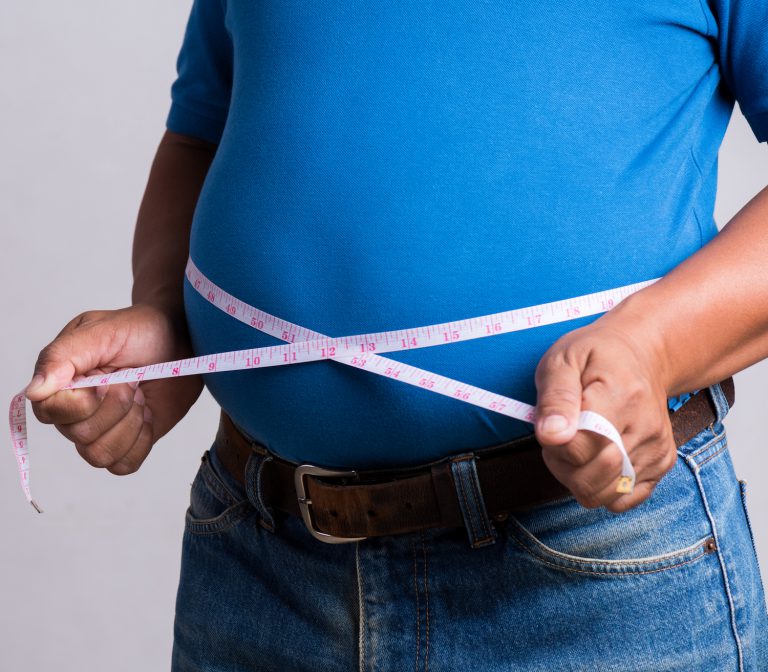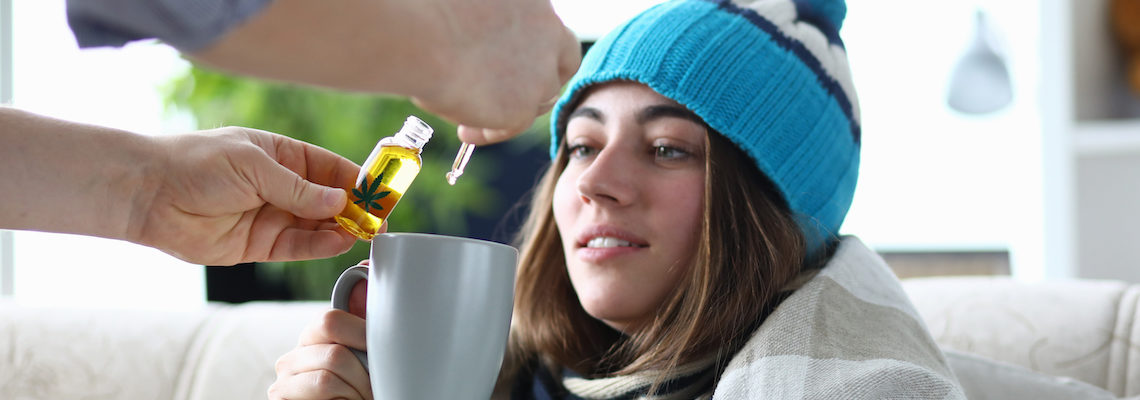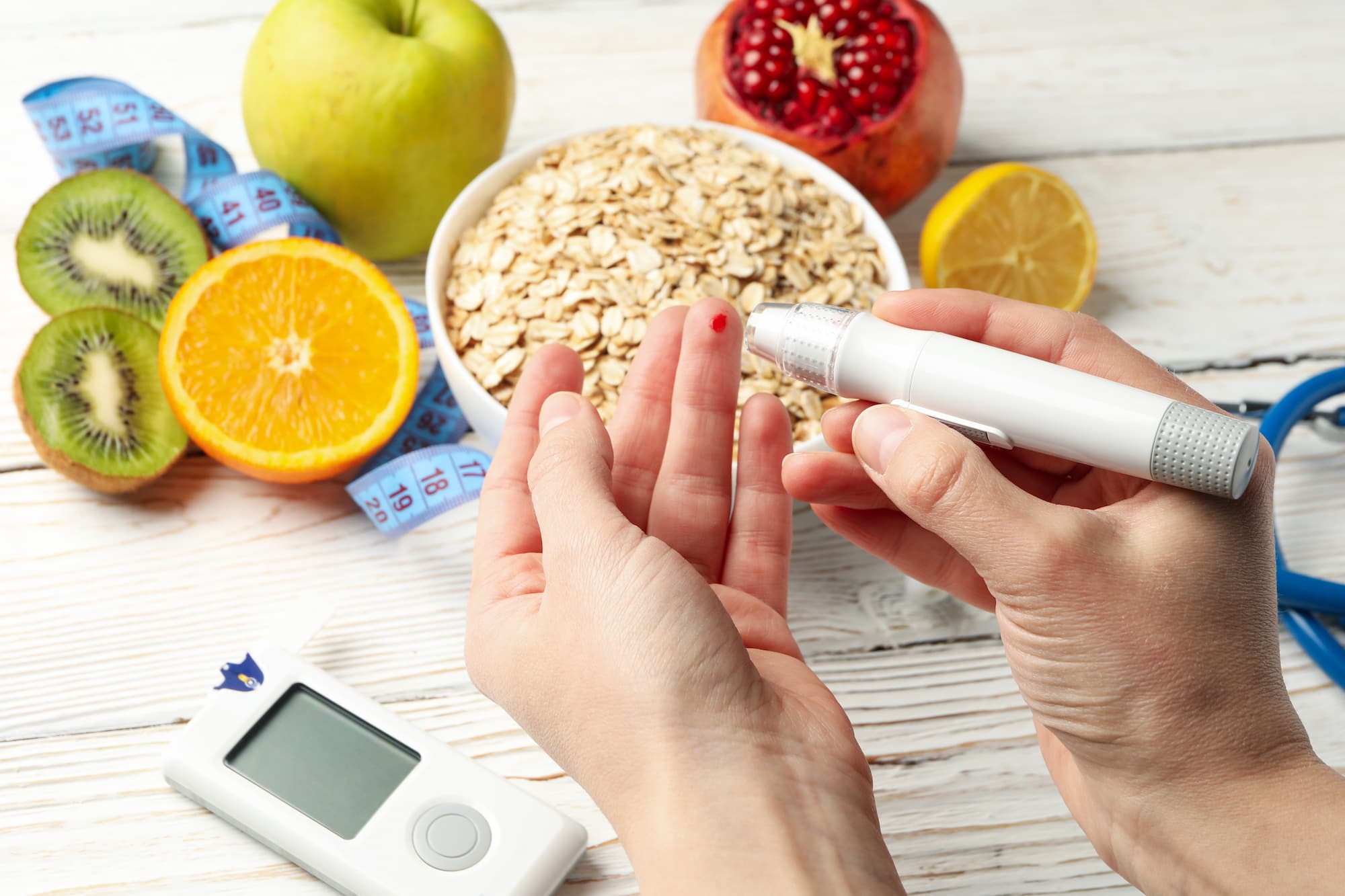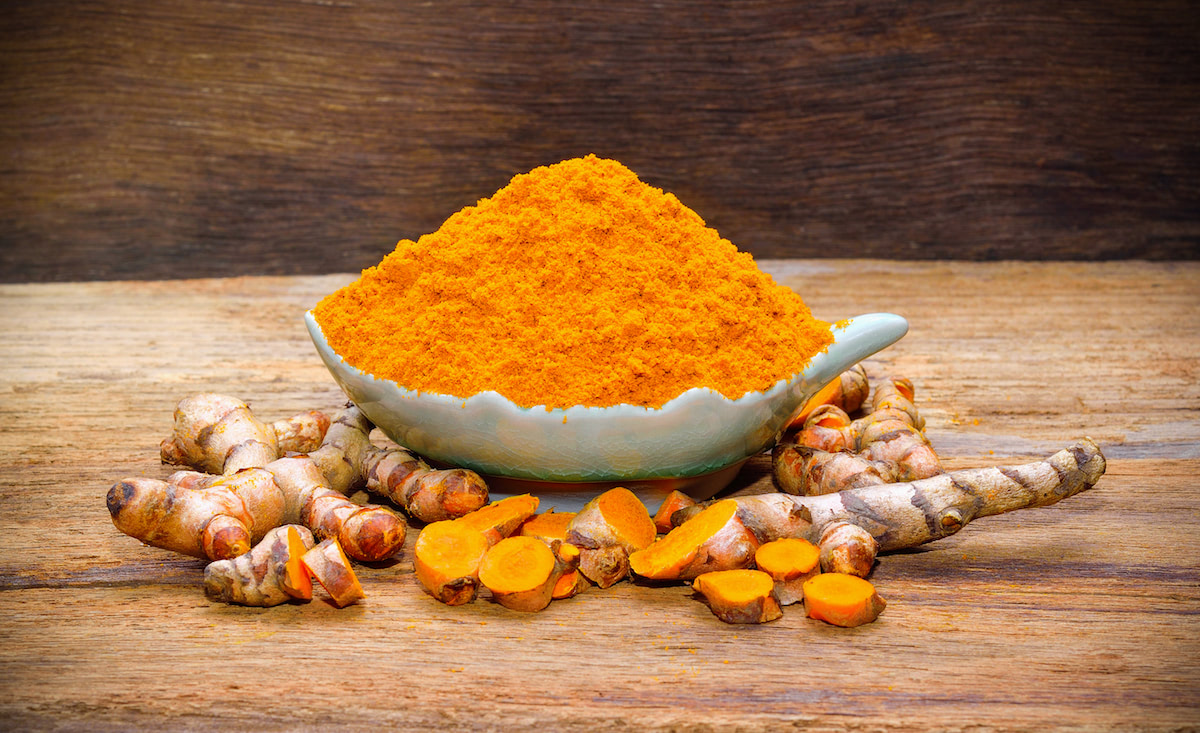Updated on 9. March 2022 from ÁYIO-Q Redaktion
Reading time: approx. 15 minutes
CBD – What you need to know about it!
Cannabidiol is known to many people as CBD. Scientific research on CBD is still in its infancy, but there are already some outstanding studies on it.
Research shows that CBD can be useful for a range of health problems, as it has anti-inflammatory and pain-relieving properties. Dosage could take on an overriding role when it comes to achieving a targeted effect. Finding the right CBD oil dose is a real challenge. On the one hand, CBD is a natural remedy whose effect cannot be predicted exactly. On the other hand, every person is special, also with regard to their complaints, and reacts differently to added ingredients. There are some guideline values that interested patients can use as a guide. This applies equally to CBD in humans and animals.
The following guide explains the effects and uses of CBD oil and, in the last section, gives advice on what to look for when buying.
- Description
- Effect
- Application areas
- Application & Dosage
- side-effects
- Interactions
- What to consider when buying CBD
CBD oil: What exactly is cannabidiol?
CBD oil (cannabidiol) is an extract obtained from the flowers and leaves of hemp plants. The most important active components of the cannabis plant are CBD (cannabidiol) and also THC (delta-9-tetrahydrocannabinol). In contrast to THC – which e.g. in cannabis causes a psychedelic reaction and thus makes you “high” – CBD has no intoxicating effect.
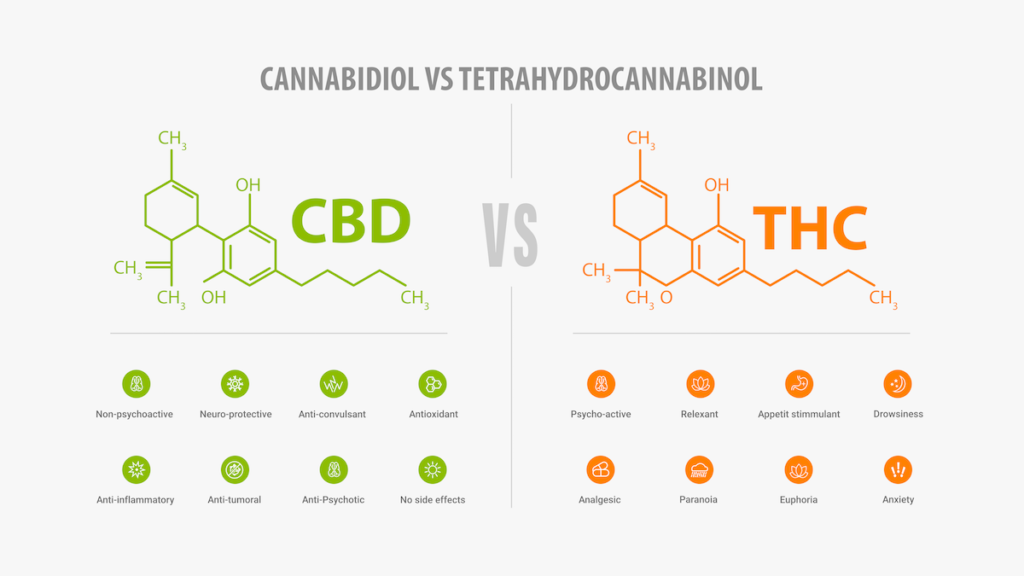
CBD may be offered in Germany without a prescription as a food supplement or cosmetic – but not as a medicine. In Switzerland, cigarettes containing CBD are also available, but Germany has put a stop to this for the time being. One of the most common ways of taking CBD remains CBD oil. However, CBD can also be taken in tablet form or used in cosmetics. Since CBD oil is not toxic, it can be used over a long period of time.
Important: In contrast to THC oil, which is purely prescription-only (e.g. for the therapy of extreme complaints and also various nerve disorders), CBD oil contains no or only very small amounts of THC (maximum 0.2 percent) – and is therefore offered without prescription.
The following ingredients are contained in commercially available CBD oils:
- Hemp oil cold pressed
- Cannabidiol
- vitamin E
- Turpentine
- Hemp molecules
What has been found out about the effect of CBD oil?
THC and CBD are the components of marijuana that are best studied in science. One point has actually been scientifically proven: CBD does not exhibit psychedelic properties and consequently cannot produce a high. Those who consume CBD do not experience a “high” feeling.
In 2015, a study was published that examined the interaction between CBD and various other energetic plant substances such as terpenes. Those who want to benefit from the diverse uses of CBD should opt for CBD as a full-spectrum preparation.
CBD is versatile and is currently enjoying growing popularity in more and more countries around the globe: cafés in the USA now offer CBD coffees, and mixed drinks with CBD are all the rage in Hollywood. The substance is available in the form of lotions, gelatine, gummy bears and also as massage oil.

There is practically no plant that is the focus of so many clinical studies as the hemp plant. The enormous interest of the scientific community in its constituents, as well as the many positive testimonials, currently speak volumes. Research studies show that the many experiences with cannabidiol are not a Placebo but are based on physical facts. Based on the evidence to date, CBD appears to be an organic alternative that is versatile and poses no significant risks. Further evidence-based studies supporting the positive reports of experience are expected in the future.
General recommendation for stress, anxiety and sleep problems
CBD is said to have anti-inflammatory, analgesic, anti-anxiety, sedative and also regulatory effects. Cannabidiol is often recommended for pain, tension, rest problems, skin diseases and also anxiety. CBD is also said to help with depression, back pain, migraines, rheumatism, arthritis and allergies.
Elements that can influence the effect of CBD:
- Age and also type of problems
- Pre-existing diseases
- Body weight
- Regularity and regularity of intake
- Dose
- Other diseases
- additional consumption of other medicines
- hereditary predispositions
- Own physical problem
- Environmental factors
How does CBD oil work in the body?
CBD is one of 70 cannabinoids found in the marijuana plant. Cannabinoids are chemical substances found in both plants and the body. CBD, as a nonendogenous, exogenous cannabinoid, has a controlling effect on the body’s own functions and can supplement and enhance them.
| Organ | Receptor | Steering effect on |
|---|---|---|
| Brain | CB1 | Anxiety, depression, nausea, pain |
| Heart | CB1 / CB2 | Heart rate |
| Liver | CB1 / CB2 | Cell protection |
| Intestine | CB1 / CB2 | Inflammation, intestinal activity |
| Skin | CB1 / CB2 | Inflammation, pain |
| Immune defence | CB2 | Inflammations, defence performance |
| Nervous system | CB2 | Pain |
| Bones | CB2 | Bone growth |
How fast and how long does CBD oil work?
A quick effect of CBD within a few hours or days cannot be assumed. In studies, CBD oil was used on test subjects for at least thirty days before the result was determined and confirmed.
What are the main uses of CBD oil?
Many people today suffer from sleep disorders. They are tired throughout the day, but when they go to sleep at night, their thoughts start to circle and they cannot get away from the restlessness of everyday life. Others fall asleep well, but wake up after a few hours and can’t sleep a wink for the rest of the night. CBD oil unfolds its relaxing effect on problems falling asleep and sleeping through the night. Unlike other sedative pills, however, you are fully awake again the next day.
Hemp can also help with psychological problems such as anxiety or burnout, which is widespread today, as well as depression. Various research studies are currently being conducted in this regard, including one in Germany at the University of Applied Sciences in Leipzig. These showed that anxiety was reduced in 32 percent of the CBD test subjects.
Furthermore, it is efficiently used in cancer therapy to alleviate the negative effects of radiation treatment. Nausea and also vomiting are combated.
Excellent results have also been achieved in patients struggling with chronic complaints. In addition, CBD oil is used to support inflammatory joint complaints. CBD oil has numerous positive applications, both in the fight against pain and in the therapy of psychological problems such as anxiety or clinical depression.
CBD can show positive effects on the following signs and symptoms as well as conditions:
| Symptom / Disease | Effect |
|---|---|
| Sleep disorder | The calming effect reduces stress and improves sleep |
| Fear / Depressions / Psychoses | Anxiety-relieving / antidepressant effect |
| Pain / muscle cramps | Pain relieving / relaxing |
| Epilepsy / seizure disorder | Antispasmodic effect |
| Inflammations | Anti-inflammatory and -fighting |
| Rheumatism / Arthritis | Reduction of nausea (similar to ginger and camomile) |
| Nausea (e.g. during cancer therapy) | Inhibition of tumour growth |
The effects are not sufficiently scientifically proven. Several people report the positive effects, which are explained by the signs and symptoms as well as disease patterns shown.
Use and intake of CBD oil
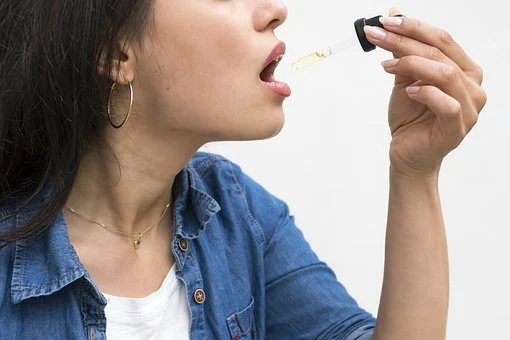
High-quality CBD oil can be taken by mouth. From here, the substance is absorbed through the mucous membrane of the mouth and the desired effect sets in quickly.
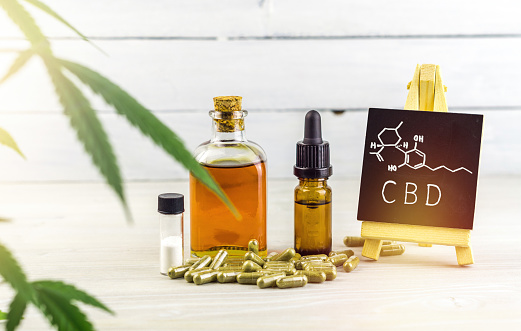
In addition to the liquid CBD oil, globules are also available in the shops. The globules are simply placed under the tongue, from where they are absorbed through the mucous membrane. The advantage of globules compared to liquid oil is that you can take them everywhere.
Capsules are also available. When taking capsules, however, one must bear in mind that the effect only occurs with a dead time. The oil pressed into the pills is only released in the stomach. Creams and lotions are also offered for external use.
CBD dose: A lot does not necessarily help a lot
The Brazilian Journal of Psychiatry published a research study in 2019 that looked at the effects of CBD isolate. According to the study, the so-called dose-response contour is supposed to be bell-shaped. This means that the expression of the dose, as well as the associated understanding, increases for a while before reaching its maximum, and then decreases again.
The research study focused on subjects who participated in a public surrogate speech test. The study reinforces the view that therapeutic dosages, especially for CBD isolate, need to be established so that the study results can further enrich medical practice.
Furthermore, the research indicates that when it comes to CBD dosage, a lot does not always help a lot. This is especially interesting for users who increase their dosage again, even if they are satisfied with the effect result.
CBD oil: Exactly how many mg ?
There is no dosage recommendation that helps equally with every complaint and also with every person. Rather, it is important for the user to find out for himself how many mg of CBD contribute to the improvement of the complaints. The following variables can influence the effectiveness of CBD oil:
- Body weight
- Type and also severity of symptoms
- Body chemistry of the person
- Degree of sensitivity to herbal ingredients
CBD oils: What is the percentage of CBD?
CBD oil should ideally always be taken at the same time of day and also over a longer period of time. The natural extract can also be helpful for severe problems. How strong an effect occurs depends, among other things, on the proportion in the CBD oil. CBD products can be bought with the following names:
- CBD oil 5 %
- CBD oil 10 %
- CBD oil 15 %
- CBD oil 20 %
To be able to dose correctly, it is also important to know how much CBD is contained in one drop of the oil:
- One drop of 5% CBD oil contains about 1.67 mg CBD
- One drop of 15% CBD oil contains about 5.01 mg CBD
CBD – Find the ideal dosage for anxiety & Co;
Even though there is no uniform dose recommendation, guideline values can serve as orientation. Taking CBD oil is therefore always a bit of trial and error.
| Standard dosage | Increased dosage | High dosage | |
|---|---|---|---|
| Amount in mg | 0.5-20 mg CBD daily | 20-100 mg CBD daily | 400 mg CBD daily |
| Symptoms/ Complaints | Problems falling asleep and staying asleep Stress Nausea | Inflammation Pain Anxiety Depression Obesity Rheumatism, autoimmune diseases Autism Fibromyalgia Headaches | Epilepsy Multiple Sclerosis Chronic Pain |
What CBD oil dosage for beginners?
People without CBD experience must first start with a reduced dosage and gradually approach the optimal amount of the plant.
It is recommended to take CBD three times a day. If the substance is well tolerated but the symptoms have not yet subsided, the dose can be changed weekly, but after 3 days at the earliest.
What CBD oil dosage for children and pets?
CBD should be used for ADHD and also for epilepsy. Administration in children is best discussed in advance with the attending physician. The doctor can also help in choosing the right dose.
For children, 2 x 1 drops daily are usually recommended, with CBD oil at a percentage of 2.5 being preferred. For children who do not like CBD oil, it is a good idea to drip the substance on a piece of bread beforehand.
CBD oil for pets: The dosage must be individually adjusted

Besides humans, various other animals, birds, fish as well as various other animals also possess the alleged endocannabinoid system (ECS), which can combine with cannabidiol. Similar to humans, CBD is also said to have a relaxing, pain-relieving as well as anti-inflammatory effect on pets.
Dosage:
For animals, too, a low dosage must be started first. For this purpose, a CBD oil with 5-10% CBD is completely sufficient. If necessary, the concentration can be readjusted. The smaller the animal, the less CBD oil needs to be given. In the beginning, 1-2 drops are sufficient to check the resistance. Just like with humans, it takes a while for a possible effect to develop. According to reports, some pets respond to the CBD oil after 1 to 2 weeks. The type and severity of the signs play a role.
The appropriate dosage for pets should be 2 drops per 5 kg body weight.
Increase dose slowly
It is difficult to give a clear dosage recommendation in advance. If you know how much CBD is in a drop, you can gradually approach the appropriate dose. It is best to start with a low dose of 5 mg per day when taking CDB for the first time. Over time, this amount can be increased in small stages. For the first 3 days, continue with 5 mg per day. On the 4th day, increase the dose to 10 mg and on the 7th day to 15 mg daily.
What side effects can CBD oil have?
Despite all the positive results, scientists have noted some possible side effects that have been reported in connection with CBD, although there are no long-term studies on this. These are often related to the type of dosage (oil, capsules, etc.) or even the timing of intake.
Overall, CBD is considered to be very well tolerated and negative effects are rather rare. Nevertheless, the danger increases when inferior CBD products are used. Numerous over-the-counter products are laced with chemicals or do not contain the amounts of CBD promised on the product packaging.
Conventional medicines can cause a variety of side effects. CBD, on the other hand, is considered to have only a few negative effects. Unfavourable side effects cannot be completely ruled out here either. If negative effects occur, the dose should be adjusted accordingly or consumption must be interrupted.
In the following, we have taken a closer look at the currently known negative effects:
1. fatigue
Can CBD make you tired? Hemp extracts are often used to treat insomnia and sleep problems, although the sleep-inducing effects of CBD are not yet clear. If you really feel that CBD makes you tired, either reduce the dose or only take it in the evening.
2. insomnia
Paradoxically, the possible adverse effects of CBD oil include not only fatigue, but also the exact opposite. Although extremely unusual, sleep problems, difficulty falling asleep and internal malaise can be observed in some individuals.
3. lowering blood pressure
As mentioned above, CBD has been shown to lower blood pressure in studies, but the result usually wears off after a few minutes. If you are currently taking blood pressure-lowering medication, special caution is advised. Here it is highly advisable not to take it without first consulting your doctor.
4. drowsiness and dizziness
Due to the blood pressure-lowering effect of cannabidiol, drowsiness may occur. Such side effects are not very common and can be largely eliminated by sufficient fluid intake. If you are not yet aware of the effects of CBD on your body, you should be careful when taking it for the first time and avoid overdosing on CBD oil, i.e. a dosage that far exceeds your suitable dose, and also not get up so quickly.
5. completely dry mouth
The fact that CBD oil can have undesirable effects such as a dry mouth or chapped lips results from the retention of saliva secretion. However, with sufficient fluid intake, this problem can be easily remedied. If you do not want the feeling, you can try taking CBD pills instead of CBD oil.
6. anorexia nervosa (anorexia)
This effect can be desirable on the one hand, but also undesirable on the other. Some people may use CBD as an appetite suppressant to combat their obesity. For those who do not intend to do so, it is obviously a negative effect. Particularly seriously ill people who are emaciated or currently suffering from anorexia nervosa need to avoid cannabidiol as a precaution, as the possible appetite suppressant effect may promote unwanted fat burning. The loss of the feeling of hunger will certainly pass a few hours after taking CBD.
7. diarrhoea
Diarrhoea is one of the most reported CBD side effects, but until now it is unclear what exactly causes it. It is a standard reaction of the body when it has to deal with a previously unfamiliar food to which it has not yet become accustomed. Under certain circumstances, this can also be due to the oil used by the supplier. Diarrhoea typically occurs in consumers who take CBD over a longer period of time and in high doses.
8. allergies
Hypersensitive reactions to CBD are uncommon but can still occur. If you know you are prone to allergic reactions, you should be cautious with full spectrum CBD products.
9. increased intraocular pressure values
A recent research study on mice suggests that CBD may increase intraocular pressure. Further studies are needed for a definite answer. Those who already have elevated intraocular pressure (glaucoma) should either stay away from CBD or at least seek clinical advice.
CBD makes you tired or dizzy? Then first check the ingredients of the product. After all, there is also a risk that the product contains too much banned THC.
Cannabidiol (CBD): Drug interactions
CBD can affect the function of enzymes in the body. This can cause medicines taken to have either a stronger or weaker effect. It is therefore recommended not to take CBD together with the following medicines:
- Acid preparations
- Anticoagulant
- Painkiller
- Neuroleptics
Cannabidiol (CBD): Interactions with various other food supplements;
CBD can also combine with selected food supplements. Consequently, increased drowsiness may occur. Corresponding observations were made with the following food supplements:
- Catnip
- Kava
- Hops
- L-tryptophan
- St. John’s wort
- Melatonin
CBD in mothers and children – a good idea?
In general, CBD is considered a safe food supplement. There are some groups of people for whom special caution is required. Especially in children, it must be taken into account that the body is still developing. In addition, possible side effects such as drowsiness and also intestinal sluggishness could unnecessarily complicate or even endanger daily life. CBD should therefore not be an alternative to a healthy lifestyle.
There is still no consensus on whether CBD is recommended during pregnancy or not. A study from 2010 found evidence that synthetic CBD could have an unfavourable effect on the development of labour. Furthermore, CBD oil can increase the permeability of the placenta.
CBD dose: Caution is advised in case of glaucoma and liver disease;
According to brand new study results, intraocular pressure could increase in glaucoma patients taking CBD. Further studies could clarify the question of whether the condition might be a contraindication to taking CBD. In another research study, very high doses were shown to cause liver-damaging effects in mice. It is not yet clear to what extent the results can be transferred to humans. In order not to take any risks, patients with liver disease should first ask their doctor for advice before taking a CBD product.
Buying CBD oil – What to look out for ?
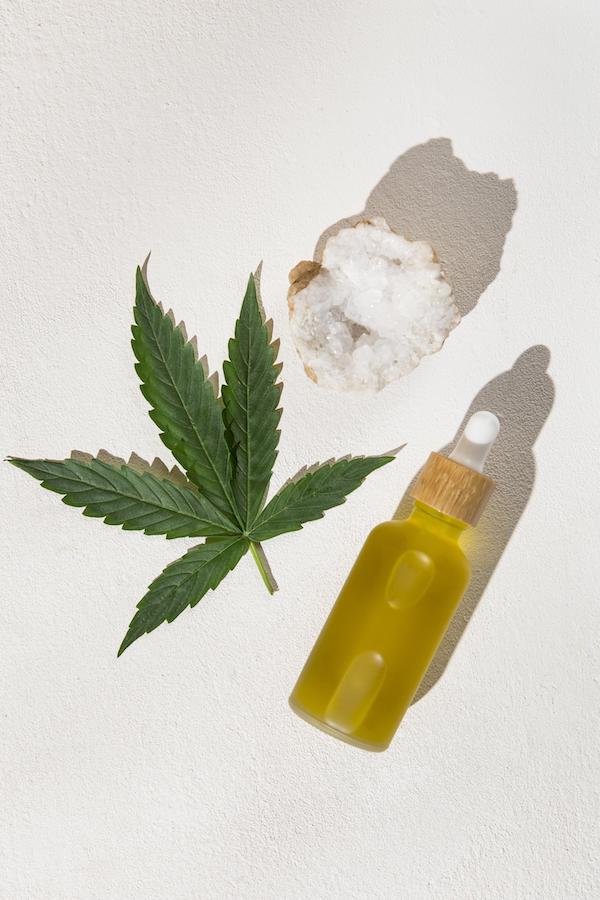
The selection of CBD oils and other hemp products on the internet is particularly large. Nevertheless, you should not rush to buy from a trader, even if he advertises an unbeatable price. The production is complex and also the production of quality products requires a lot of work and technical knowledge, which has a corresponding effect on the price.
Especially with hemp articles it is very important to pay attention to excellent quality. The following characteristics should be taken into account:
- Organic cultivation
- Free from pesticides
- Free from additives
- Grown as well as produced within the EUR
- The manufacturer is certified
- Products are consistently tested by laboratories
1. Select full spectrum extracts
Both full-spectrum extracts and CBD isolates are available on the market. While you only look in vain for the separated compound CBD and other cannabinoids in a CBD isolate, full-spectrum extracts contain the concentrated plant power. Those who opt for a full-spectrum extract benefit from the so-called entourage effect. This describes an interaction that is activated by chemical plant elements.
2. Select the carbon dioxide extraction
The production of CBD products is complex. Some suppliers use harsh solvents to save money. These solvents can leave chemical residues in the preparation. To avoid impurities during the extraction process, CO2 can be used. This process is called “CO2 extraction” in expert circles. At low temperatures as well as under high pressure, the active ingredient CBD is extracted from the plant components. Carbon dioxide extraction offers the advantage that no harmful substances are present in the preparation. Sensitive active substances such as flavonoids or terpenes are removed by this manufacturing process.
3. pay attention to the origin
The hemp plant has the ability to pull heavy metals as well as toxic substances out of the soil. What is a good thing for the soil can be a failure for the consumer. Nevertheless, pay attention to the origin of the raw materials so as not to purchase inferior products. It is best to choose European cultivation of qualified commercial hemp.
4. Inquire about the CBD content
It is often difficult for consumers to know how much cannabidiol is actually contained in a product. A 2015 investigation by the US Food and Drug Administration (FDA) found that out of 24 CBD products, only 2 contained the stated amount. You have the option of asking the manufacturer for actual laboratory tests that have been conducted. The results of the laboratory tests provide information without a doubt about how much CBD a particular preparation contains. Trustworthy suppliers will certainly be happy to provide you with even more detailed information about their products.
5. value for money
Even an expensive item is no guarantee of performance. A gentle CO2 extraction, for example, naturally makes the product significantly more expensive. Less expensive preparations, on the other hand, usually use chemical extraction processes.
FAQ
How quickly does CBD oil work for anxiety?
CBD oil is a natural product. It is not possible to predict exactly how quickly a possible effect can occur. Some users report that stress and anxiety improve after a few weeks.
How to use CBD oil ?
CBD oil (also called hemp oil) is primarily available as a tincture. You can put a few drops under your tongue, keep the CBD in your mouth for a few moments and then ingest it. In this way, the mucous membranes absorb the oil and you enjoy an optimal effect.
Can CBD trigger anxiety?
Negative effects such as fear or stress and anxiety can occur when using cannabis with high THC content. CBD, on the other hand, does not induce stress and anxiety as it is a natural sedative
What are the side effects of CBD oil?
When taking CBD, five basic adverse effects can occur: decreased blood pressure, dry mouth, sluggishness of the bowels, anorexia nervosa, and fatigue. All of these negative effects are considered temporary negative effects – that is, they only last as long as the CBD remains in the body.
Is CBD oil helpful for the heart?
Previous studies have shown that CBD can combat many causes of heart problems, including diabetes, anxiety, inflammation, atherosclerosis and metabolic disorders.
Is addiction to CBD oil possible?
Unlike conventional cannabis, whose main energetic component is THC, CBD hemp is not prohibited because it does not produce a “high”. According to a study by the Globe Health Company (THAT) in November 2017, no “physical dependence” was actually found in corresponding animal experiments.
The web content of ÁYIO-Q.com is for your information and in no case replaces a personal consultation or treatment by a qualified physician. The contents of ÁYIO-Q.com cannot and must not be used to make independent diagnoses or for self-medication.
Sources:
- Moltke J, Hindocha C. Reasons for cannabidiol use: a cross-sectional study of CBD users, focusing on self-perceived stress, anxiety, and sleep problems. J Cannabis Res. 2021;3(1):5. Published 2021 Feb 18. doi:10.1186/s42238-021-00061-5
- Shannon S, Lewis N, Lee H, Hughes S. Cannabidiol in Anxiety and Sleep: A Large Case Series. Perm J. 2019;23:18-041. doi:10.7812/TPP/18-041
- Bergamaschi MM, Queiroz RH, Chagas MH, et al. Cannabidiol reduces the anxiety induced by simulated public speaking in treatment-naïve social phobia patients. Neuropsychopharmacology. 2011;36(6):1219-1226. doi:10.1038/npp.2011.6
- Cuttler C, Spradlin A, McLaughlin RJ. A naturalistic examination of the perceived effects of cannabis on negative affect. J Affect Disord. 2018;235:198-205. doi:10.1016/j.jad.2018.04.054
- Greco R, Gasperi V, Maccarrone M, Tassorelli C. The endocannabinoid system and migraine. Exp Neurol. 2010;224(1):85-91. doi:10.1016/j.expneurol.2010.03.029
- Carlini EA, Cunha JM. Hypnotic and antiepileptic effects of cannabidiol. J Clin Pharmacol. 1981;21(S1):417S-427S. doi:10.1002/j.1552-4604.1981.tb02622.x
- De Vita, M. J., Maisto, S. A., Gilmour, C. E., McGuire, L., Tarvin, E., & Moskal, D. (2021). The effects of cannabidiol and analgesic expectancies on experimental pain reactivity in healthy adults: A balanced placebo design trial. Experimental and Clinical Psychopharmacology. Advance online publication. https://doi.org/10.1037/pha0000465
- Tóth KF, Ádám D, Bíró T, Oláh A. Cannabinoid Signaling in the Skin: Therapeutic Potential of the “C(ut)annabinoid” System. Molecules. 2019;24(5):918. Published 2019 Mar 6. doi:10.3390/molecules24050918
- Jerzy P. Szaflarski, Elizabeth Martina Bebin, Gary Cutter, Jennifer DeWolfe, Leon S. Dure, Tyler E. Gaston, Pongkiat Kankirawatana, Yuliang Liu, Rani Singh, David G. Standaert, Ashley E. Thomas, Lawrence W. Ver Hoef, Cannabidiol improves frequency and severity of seizures and reduces adverse events in an open-label add-on prospective study, Epilepsy & Behavior, Volume 87, 2018, Pages 131-136, ISSN 1525-5050, https://doi.org/10.1016/j.yebeh.2018.07.020.
- Elizabeth A. Thiele, Eric D Marsh, Jacqueline A French, Maria Mazurkiewicz-Beldzinska, Selim R. Benbadis, Charuta Joshi, et al., Cannabidiol in patients with seizures associated with Lennox-Gastaut syndrome (GWPCARE4): a randomised, double-blind, placebo-controlled phase 3 trial, VOLUME 391, ISSUE 10125, P1085-1096, MARCH 17, 2018, https://doi.org/10.1016/S0140-6736(18)30136-3
- Kunos G, Osei-Hyiaman D, Liu J, Godlewski G, Bátkai S. Endocannabinoids and the control of energy homeostasis. J Biol Chem. 2008;283(48):33021-33025. doi:10.1074/jbc.R800012200
- Bielawiec P, Harasim-Symbor E, Chabowski A. Phytocannabinoids: Useful Drugs for the Treatment of Obesity? Special Focus on Cannabidiol. Front Endocrinol (Lausanne). 2020;11:114. Published 2020 Mar 4. doi:10.3389/fendo.2020.00114
- Morgan CJ, Das RK, Joye A, Curran HV, Kamboj SK. Cannabidiol reduces cigarette consumption in tobacco smokers: preliminary findings. Addict Behav. 2013;38(9):2433-2436. doi:10.1016/j.addbeh.2013.03.011
- Argueta DA, Ventura CM, Kiven S, Sagi V, Gupta K. A Balanced Approach for Cannabidiol Use in Chronic Pain. Front Pharmacol. 2020;11:561. Published 2020 Apr 30. doi:10.3389/fphar.2020.00561
- CANNABIDIOL (CBD), Pre-Review Report, Agenda Item 5.2, WHO Expert Committee on Drug Dependence Thirty-ninth Meeting, Geneva, 6-10 November 2017, Zugriff 06.02.2022
- Kerstin Iffland, Franjo Grotenhermen; An Update on Safety and Side Effects of Cannabidiol: A Review of Clinical Data and Relevant Animal Studies, 1 Jun 2017, https://doi.org/10.1089/can.2016.0034
[1] Marie NM Volmar, Jiying Cheng, Haitham Alenezi, Sven Richter, Alisha Haug, Zonera Hassan, Maria Goldberg, Yuping Li, Mengzhuo Hou, Christel Herold-Mende, Cecile L. Maire, Katrin Lamszus, Charlotte Flüh, Janka Held-Feindt, Gaetano Gargiulo , Geoffrey J. Topping, Franz Schilling, Dieter Saur, Günter Schneider, Michael Synowitz, Joel A. Schick, Roland E. Kälin, Rainer Glass, Cannabidiol konvertiert NF-κB in einen Tumorsuppressor beim Glioblastom mit definierten antioxidativen Eigenschaften, Neuroonkologie , Band 23 , Ausgabe 11, November 2021, Seiten 1898–1910, https://doi.org/10.1093/neuonc/noab095
[2] De Filippis D, Esposito G, Cirillo C, et al. Cannabidiol reduces intestinal inflammation through the control of neuroimmune axis. PLoS One. 2011;6(12):e28159. doi:10.1371/journal.pone.0028159
[3] Mondello E, Quattrone D, Cardia L, et al. Cannabinoids and spinal cord stimulation for the treatment of failed back surgery syndrome refractory pain. J Pain Res. 2018;11:1761-1767. Published 2018 Sep 6. doi:10.2147/JPR.S166617
[4] Iffland K, Grotenhermen F. An Update on Safety and Side Effects of Cannabidiol: A Review of Clinical Data and Relevant Animal Studies. Cannabis Cannabinoid Res. 2017;2(1):139-154. Published 2017 Jun 1. doi:10.1089/can.2016.0034
[5] Nagarkatti P, Pandey R, Rieder SA, Hegde VL, Nagarkatti M. Cannabinoids as novel anti-inflammatory drugs. Future Med. Chem . . 2009;1(7):1333-1349. doi:10.4155/fmc.09.93
[6] Bloomfield, et al. (2020). The effects of acute cannabidiol on cerebral blood flow and ist relationship in memory: An arterial spin labelling magnetic resonance imaging study. Journal of Psychopharmacology. Vol. 34(9) 981 –989. Downlaod vom 08. Oktober 2020



